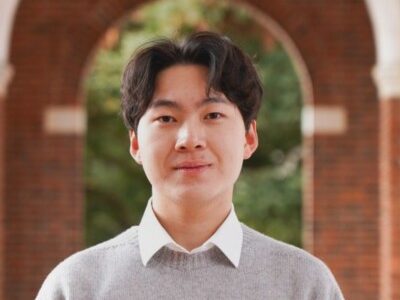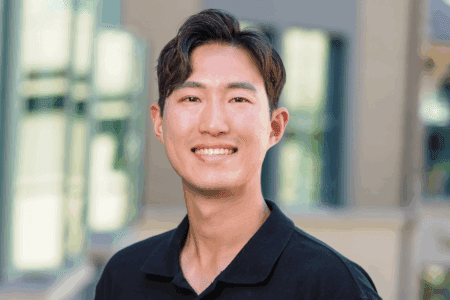
When Liverpool won the Premier League in 2020 and 2025, fans celebrated their skill and passion, but few realised how much data science had shaped those title triumphs. Behind the scenes, every pass, sprint, and shot was analysed to give the team an edge.
The same is true in Hollywood, where film studios rely on data science to predict audience preferences, test scripts, and even guide casting decisions to maximise box office success.
These examples show one simple truth: data science drives growth.
And that’s exactly what Charles Kakou, a French data scientist, did at “The Diary of a CEO” (DOAC), one of Europe’s most popular podcasts, hosted by entrepreneur Steven Bartlett.
Charles helped transform the podcast from one million to over eight million subscribers by building data systems, organising and analysing performance metrics, and building AI tools.
His journey into this field, however, started long before the podcast.

For Charles, being a data scientist is all about using data to find insights that help make better decisions. Source: Charles Kakou
How to get into data science
Charles grew up in France, unsure of his academic direction. While classmates leaned toward finance, he followed his strengths. “So, I looked at where I had the highest grades, which were in mathematics and statistics,” he says. “I thought, okay, I must be good at this, so let’s just keep going.”
That instinct led him to Erasmus University Rotterdam for Statistics and Business, followed by a double bachelor’s — one in Rotterdam, another in Amsterdam — deepening his grasp of financial data.
As big data gained global traction, Charles saw a future path. He pursued a master’s in Big Data and Analytics at ESCP Business School. “I literally fell in love with the field,” he says.
His first graduate role at Orange Business Services was interesting, but it didn’t let him create.
That changed at Nike in Amsterdam, where he built models that shaped real business decisions. Later, during the pandemic, he applied data science to urgent health challenges in the UK before pivoting into the podcast world with Steven on DOAC.

Thanks to data, Charles noticed that most people listen to the podcast during their commute, starting in the morning and finishing on the way home. Source: Charles Kakou
Turning raw data into millions of subscribers
Charles had been living in the UK for three years when the opportunity came his way.
One day, he came across a LinkedIn post advertising a data scientist role. At that stage, he didn’t even know who Steven was. A friend of his actually applied on his behalf, and the very next day, he was invited for an interview. The process moved quickly, and within two weeks, he was hired.
Looking back, Charles believes not knowing Steven’s celebrity status was a huge advantage. “During my final interview with him, I was able to stay calm and focus on my presentation because I didn’t realise how famous he was in the UK,” he says. “It was pure chance. My friend applied for me, I went for it, and it went really well.”
When Charles joined, the podcast was already thriving and attracting a strong audience. To support the team’s growth ambitions, he focused on unlocking the full potential of their data. He built intuitive dashboards to present key metrics clearly, developed a pipeline to efficiently extract and organise information, and began providing actionable insights that helped the team make informed, data-driven decisions.
Once those foundations were established, Charles moved on to more advanced work. He began applying artificial intelligence to support the fast-paced production schedule. From automating editing workflows to designing AI agents that helped team members save time, his contributions quickly transformed operations.
“I also created innovative tools, like a multi-language algorithm that could take Steven’s voice and adapt it for audiences in French, Spanish, and other languages, opening up new markets and giving the podcast a wider reach,” he says.

One of the podcast episodes featured Arsenal legend Thierry Henry (right), whom Charles is a big fan of. Source: Charles Kakou
Charles would go on to play a key role in the podcast’s growth. When he arrived, the show had around one million subscribers. By the time he left, that number had soared to more than eight million, representing a 700% increase. While he doesn’t take full credit, he acknowledges that shifting the company toward a data-driven approach made a huge difference.
“From there, we kept improving and experimenting,” he says. “At some point, you find the approach that works, and you go for it.”
After several years of driving growth and innovation, the mission he set out to accomplish at DOAC was complete. Charles then faced a new question: what’s next for him? The answer, he admits, was that he felt ready to move on.
“It was a personal decision,” he says. “It’s an amazing place to work — the people are incredible, the company is growing, and Steven is a fantastic boss. But I just felt like I needed to do something different.”
Charles’s mission: Helping companies see beyond the data
Today, Charles works as a freelance data scientist, helping companies use artificial intelligence to make smarter decisions. His focus is on showing businesses how AI can maximise profits, cut costs, and improve the way they operate. He continues to consult across different industries, applying the skills he has built over the years to solve complex problems.
His career has also shown him something important: no matter the industry, the role of a data scientist is becoming indispensable. In today’s world, data is no longer optional; it’s the foundation of every successful business strategy. Without skilled data professionals, companies risk making decisions in the dark.
“A company that doesn’t use data science is essentially guessing,” he says. “They are making strategic decisions based on assumptions rather than facts. Once you have data, you can turn guesses into facts and start making informed decisions, which is how growth happens. My advice is to hire the right data professionals, put your data structure in place, and start analysing what you have. Look for patterns, and you’ll quickly see meaningful changes.”

Today, Charles is freelancing, helping clients in different industries build algorithms and AI models. Source: Charles Kakou
This focus on using AI to solve real-world problems has also shaped Charles’s entrepreneurial mindset. Alongside consulting, he is developing a post-production AI tool for content creators, an idea born out of his time working in media. There, he saw firsthand how editing and distribution could be both time-consuming and resource-heavy.
“This tool will simplify the process, with AI handling most of the work once you’ve finished recording,” he says.
Just as his tool is designed to keep creators efficient and competitive, Charles believes students entering the field of data science must take the same approach. Staying ahead of the curve, he says, is the key to long-term success.
“I would advise students to specialise in prompt engineering, which is becoming increasingly important,” he says.
“Knowing how to ask the right questions in the right way is key to getting the results you want. So, my three main pieces of advice are: stay up to date, master the area where you’re lacking (techies should learn business, and business-focused individuals should learn some tech), and remain aware of new updates. This approach will help you work faster, stay competitive, and excel in the field.”










